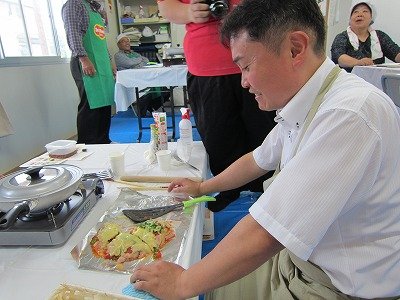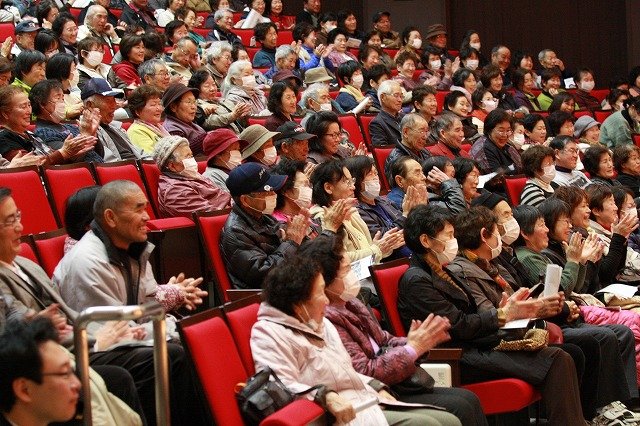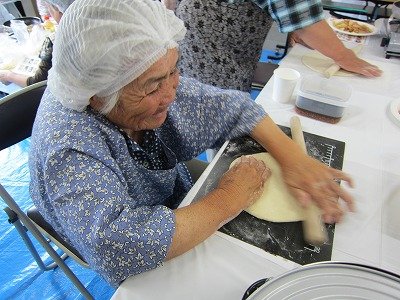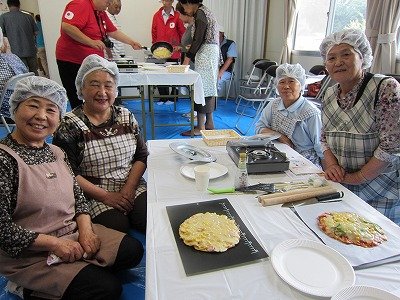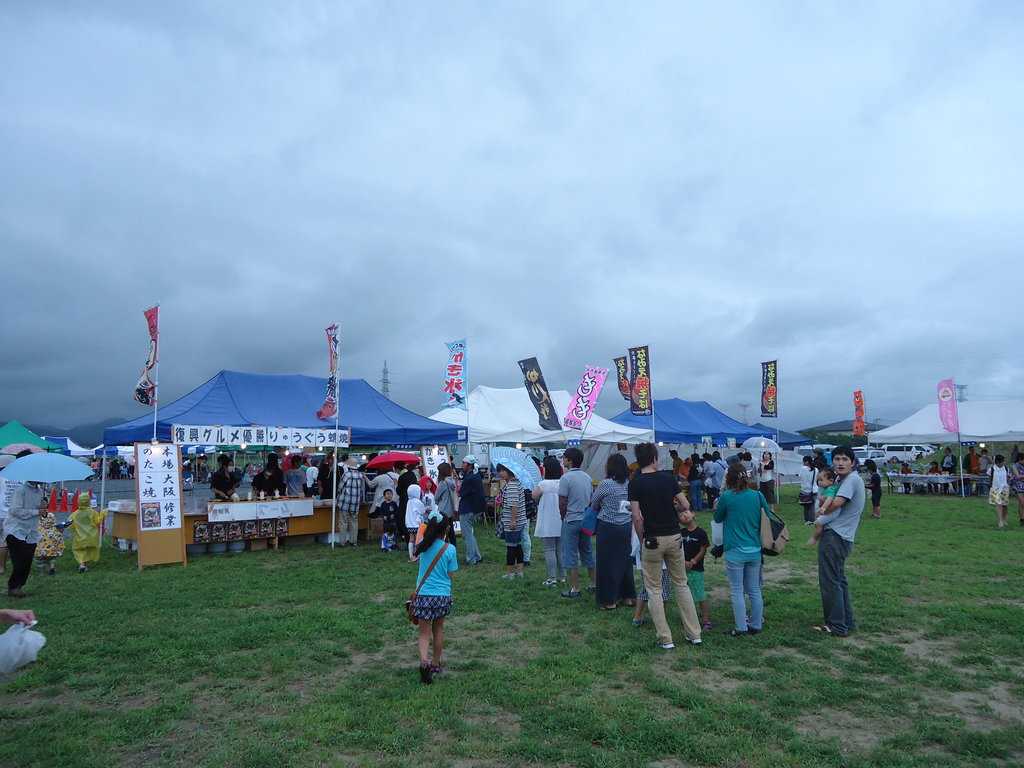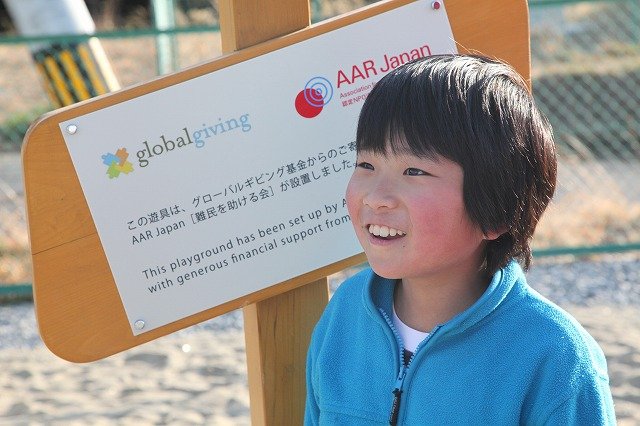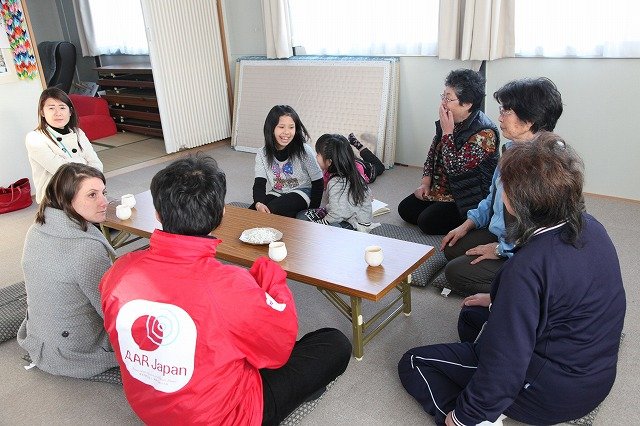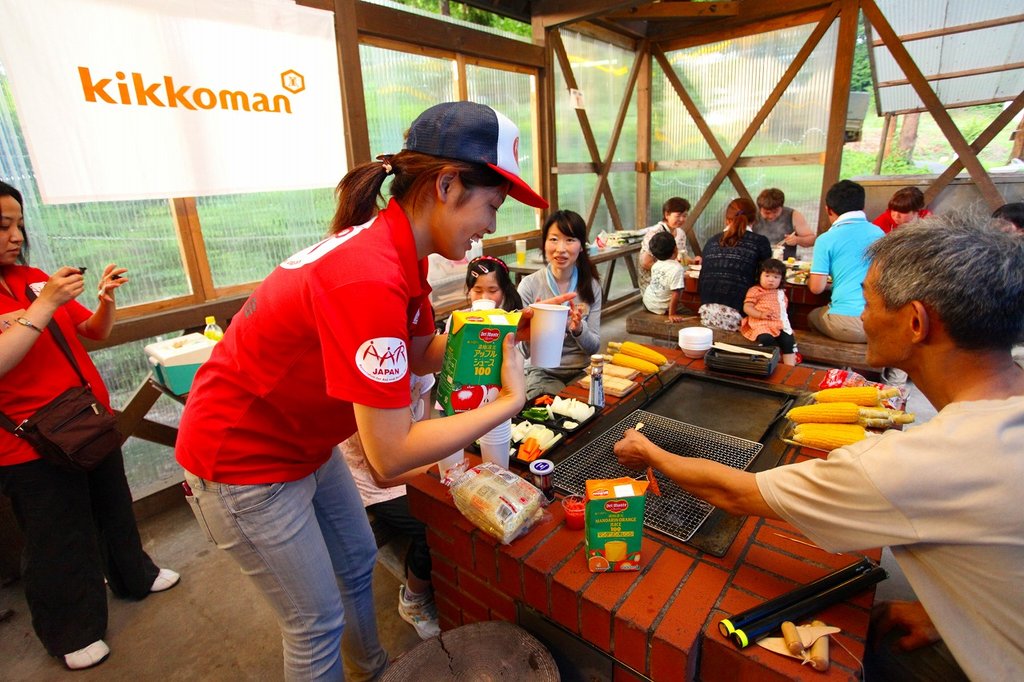By Daijo Tsuchikawa | Associate programme coordinator, AAR Japan
In Fukushima after the Great East Japan Earthquake and the subsequent nuclear power plant catastrophe, many families, especially those with children, are having a tough time both mentally and physically because of the risk of being exposed to radioactive particles. Parents can not let children play outside and this leads to immense stress both for parents and their children, while also increasing the risk of obesity among children from lack of exercise.
In response, on July 22nd and 23rd, 2012, as a part of the “Building Healthy Communities Project,” AAR Japan held a two-day workshop activity in Fukushima Prefecture in the town of Nishi-Aizu. This event aimed to alleviate the stress among disaster-affected families by allowing them to spend time in nature with no worries so that they can have a memorable experience. Before the workshops we measured the level of radioactivity in Nishi-Aizu Town and the result was 0.08 micro-sieverts per hour, which is nearly equal to the measurement at Tokyo. Thus family members from disaster-affected areas were invited to spend 2 days to enjoy many exciting and unforgettable experiences such as starting fire using only ropes and wood, making soba (traditional Japanese noodle), and creating handcraft items from bamboo tree.
Various enjoyable workshops and entertainment
Bamboo tree handcraft and fire-making
We invited Mr. Hideki SEKINE as the instructor for creating handcraft goods from bamboo trees and making fire with ropes and wood. Mr. SEKINE teaches at Tama Art University, Wakou University, and Kuwahara Design Research Institution and is also the holder of the title of “world’s fire-making champion”. Using bamboo, Mr. SEKINE taught children how to craft items such as percussion instruments, flutes, drinking cups, and water guns. Also children tried to make fire with just a rope and wood. It took the children many tries but in the end, when the fire was finally lit, everyone raised their voices in excitement and appeared proud of themselves.
Soba making workshop
Soba is a type of traditional Japanese noodles made from buckwheat flour. We invited soba master Mr. Tadashi HASEGAWA, who led the children throughout the noodle-making process which included kneading the dough, stretching it, and cutting it to make fresh soba noodles. Some children had difficulties cutting the noodles into the same width but they eventually got a hang of it and enjoyed the process. When we cooked the soba noodles, everyone was happy with the end product of their hard work.
Fun, fun, fun
Of course, in between the workshops, children had free time to enjoy the beautiful nature where they spent time catching insects, ran freely in the woods playing tag, and also enjoyed climbing into a tree house. At night, children and their parents enjoyed a BBQ and beautiful fireworks, which wrapped up this unforgettable night.
Participant’s remarks
Mrs. Hiromi IWASAKI (66) who participated with 2 of her grandchildren said with smile “Usually I can’t let my grandchildren go outside but during this event I can let them play outside without any worry and hesitation so I really enjoyed and appreciated this occasion.”
Mrs. Hiromi KOBAYASHI (37) who participated with her husband and 3 children proclaimed “It feels after such a long time that I can let my children play outside. All the events were great.”
Gratitude and resolution
AAR Japan will keep organizing many events to alleviate the stress and pain for people who have been suffering from the Great East Japan Earthquake. We hope to achieve this with help from all over the world as we have done so far. We would like to emphasize that we really appreciate all the help and kindness of our donors. We will keep collecting donation and every bit of your kindness helps us greatly. Please help spread this information and it will be our pleasure to be able to inform you how our activities are progressing in near future.
Project reports on GlobalGiving are posted directly to globalgiving.org by Project Leaders as they are completed, generally every 3-4 months. To protect the integrity of these documents, GlobalGiving does not alter them; therefore you may find some language or formatting issues.
If you donate to this project or have donated to this project, you can receive an email when this project posts a report. You can also subscribe for reports without donating.
